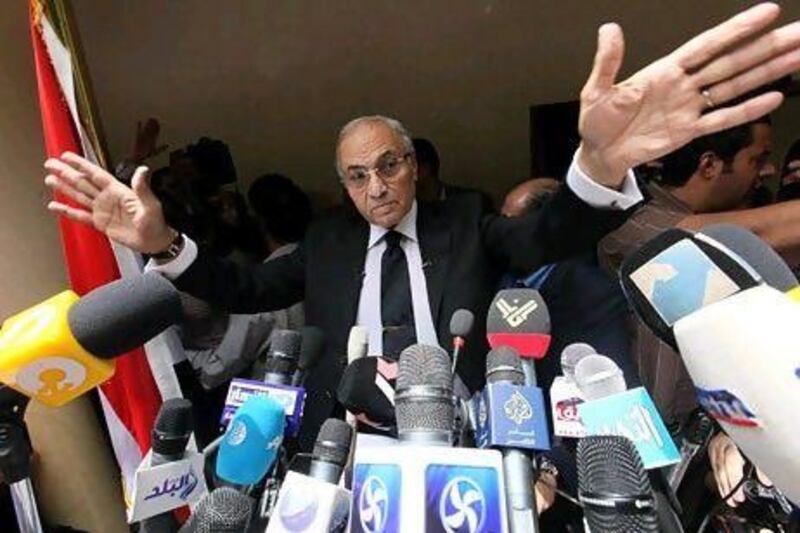CAIRO // It was 8pm, or just one hour before the polls were due to close, bringing the curtain down on two days of voting in Egypt's landmark presidential election.
An hour was much more than I needed to get from Zamalek, an upscale island neighbourhood in central Cairo, to Rhoda district, the city's only other residential Nile island - and my birthplace.
With the aid of the election commission website, I learned that my polling centre was at a middle school for girls on the very Nileside street where I was born and grew up.
There were no lines at the polling centre, no fights between representatives of rival candidates and no campaign workers trying to influence my vote.
More importantly, there were no heated debates between voters that I could join to argue my own views about the merits and shortcomings of the 13 candidates running for the land's highest office.
Instead, the election workers in polling station number 18 looked indifferent and hardly spoke to me as I presented my ID card.
"Mark the empty box next to the name of the candidate of your choice," a woman wearing a headscarf said mechanically while seated behind a rickety school desk.
I did just that and on my way out, she called me back. I forgot to take back my ID and to dip my finger in ink, a practice meant to prevent multiple voting. I went back, collected my ID and dipped my little finger in the ink.
"I just saved you a trip back here to collect your ID," she scolded me in a more lively tone.
Outside the polling station, in the schoolyard and in the ground-floor headmaster's office, soldiers in camouflaged fatigues loitered, while their officers joined their police peers in an office to smoke, drink glass after glass of sweet, black tea and talk endlessly.
I left voting too late to savour the festive and somewhat heated atmosphere that had prevailed at polling centres, which so many voters boastfully spoke to me about on Wednesday and earlier on Thursday.
Still, that did not take anything away from the value of what I did. I was one of an estimated 25 million Egyptians, or half of all registered voters, who took time out of their daily grind to make the journey to a polling centre and cast a ballot on Wednesday and Thursday.
It was the first time ever that I had cast a ballot in a nationwide election in Egypt, something that I could only thank last year's popular uprising for.
To put it another way, Egyptians, me included, are now deciding on their leader for themselves and of their own free will. It is a great thing to be a part of after decades of "yes" or "no" referendums in which Hosni Mubarak and his predecessors ran unopposed and their results were a foregone conclusion.
Rightly, I stayed away from those shams, knowing that my vote did not count and that it would have only helped the regimes of Mubarak, and Anwar Sadat before him, to maintain the charade of a participatory political system.
However, the result of last week's two-day vote recreated the same rivalry that defined Mubarak's 29-year rule - a politician with a military background against Islamists seeking to inject more religion into government.
The top two finishers in the field of 13 candidates were Mohammed Morsi of the Muslim Brotherhood and Mubarak's last prime minister and former air force commander, Ahmed Shafiq.
They will go head-to-head in a run-off scheduled for June 16-17, a contest that could have only been dreaded during the 18 days of the uprising, when millions of Egyptians took to the streets driven by their desire for a democratic and civilian government and an end to six decades of de facto military rule.
Many Egyptians will be facing a dilemma when voting in the run-off. Neither Mr Morsi nor Mr Shafiq represent a middle path of reforming the nation without lurching onto the divisive path of strict implementation of Islamic law.
It will be a heated contest as both candidates have diehard supporters and are intensely resented by significant sectors of the population. It is the most polarising contest possible and, regardless of its outcome, would leave divisions and scars that may endure beyond the vote.





